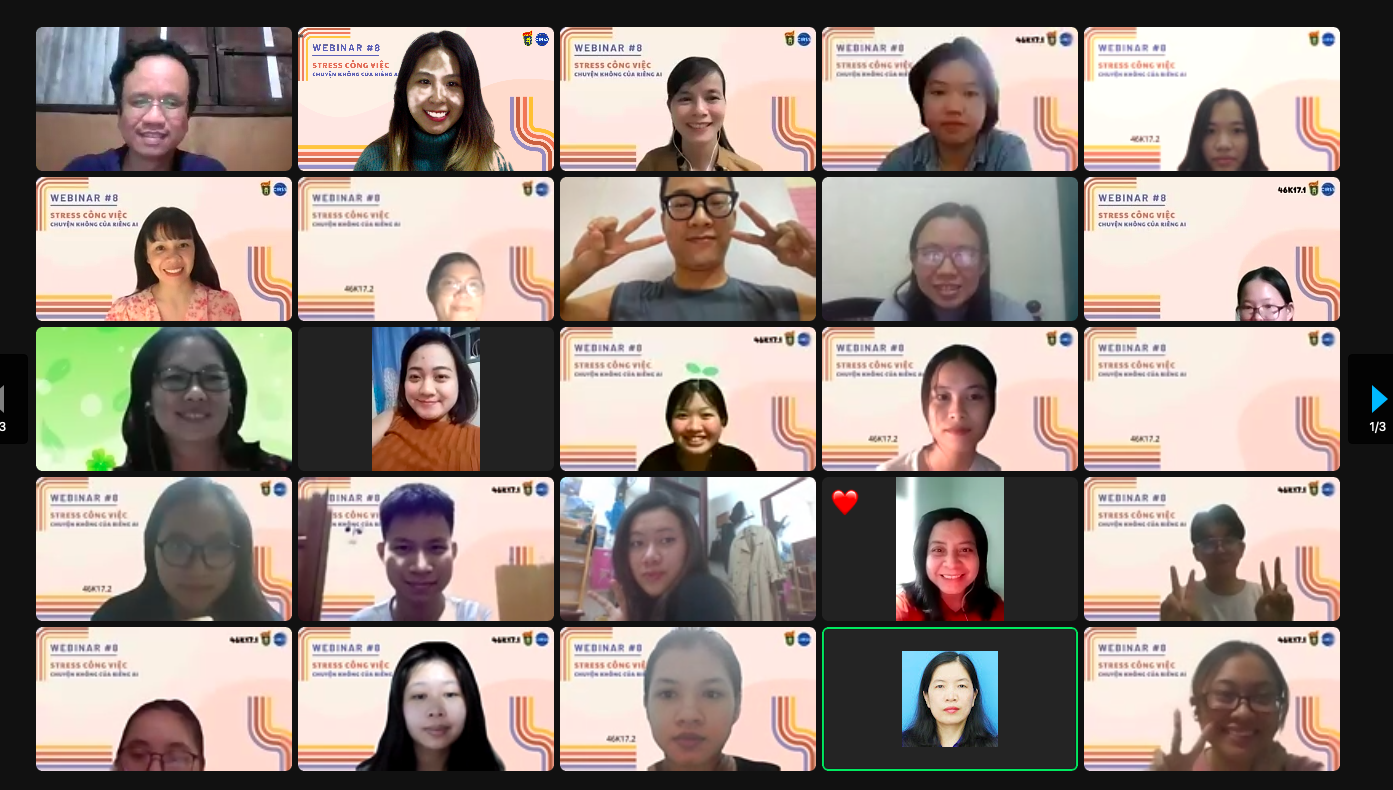Workplace stress is no longer an unfamiliar topic for employees; however, it remains a challenging issue for individuals and especially for organizations, as stress can have many unforeseen consequences. From a biological perspective, individuals experiencing work-related stress may suffer from cardiovascular diseases, high blood pressure, and stomach problems. From a psychological perspective, stress reduces feelings of happiness in personal life, potentially leading to burnout, professional apathy, substance abuse, mental disorders, and suicide. At the organizational level, when an individual experiences work-related stress, their emotional connection to the organization decreases, they feel that the benefits they receive are minimal, and they put less effort and dedication into their work. The consequence is lower work efficiency and an increased rate of employee turnover.
Associate Professor Dr. Le Thi Minh Loan has pointed out the causes of stress in the workplace:
- Personality traits of an individual
- In the five personality attributes, those who are dedicated to their work and those who are emotionally unstable/troubled are at a higher risk of experiencing stress at work.
- Furthermore, extroverts are also at risk of stress if their jobs offer few opportunities to interact and communicate with others. Conversely, for introverts, jobs that require a lot of communication can cause them stress.
- According to Cattell's 16-factor personality scale, "anxiety" is a risk factor for stress.
- Type A personalities (competitive, aggressive, constantly pressured by time, high achievement needs, hostile) are more likely to experience stress at work than Type B personalities, which have personality traits opposite to Type A.
- Work-related issues:
- Job nature: Jobs that are too easy or too difficult compared to an employee's abilities can also put a lot of pressure on them.
- Occupational specifics: Some occupations also carry risks that cause stress, such as healthcare, construction, aviation, accounting, and business. Besides physical risks, there are also mental risks.
- The work environment is too noisy, dusty, stuffy, or the office space is designed too simply or too gaudily.
- Long working hours.
- Individual responsibility at work: the greater the responsibility, the more susceptible they are to pressure, as the consequences or problems that arise at work affect not only themselves but also many others.
- Job role ambiguity: Employees who are unclear about their role (unsure of their position and scope of work) or who experience role conflict (knowing their job but feeling overwhelmed, that their tasks are inappropriate, or incompatible with other roles) are at a higher risk of job stress.
- Lack of balance between work and family roles.
- Organizational environment
- The transformation of information technology:
- Relationships with colleagues are not very smooth; there are conflicts.
- A leader who lacks trust, is prejudiced, unfair, and makes biased judgments...
Assoc. Prof. Dr. Le Thi Minh Loan introduced to the participants the steps to resolve work stress according to the guidance of Cartwright and Cooper (1997): (1) Correctly recognize and accept the existence of the problem; (2) Identify the problem and try to eliminate or change the stress of the problem; (3) Find ways to cope if the stressful problem cannot be changed; (4) Monitor and review the results of the response. Through this, the speaker shared some ways to cope with work stress from the perspective of individuals and organizations.
- From a personal perspective: Create a to-do list and prioritize different tasks; Change negative beliefs into positive, supportive ones; Use temporary defense mechanisms, such as suppressing feelings, blaming others, or rationalizing problems; Relax: Talk to family, friends, or colleagues you truly trust and have similar interests; Play your favorite sports during breaks at work or at the end of the workday; Practice yoga or go to the gym; Drink a cup of tea/coffee and listen to your favorite music; Play games or use social media; Use psychological counseling services for support and stress relief.
- From the organizational perspective: Support employees in adapting to the work environment by establishing rules for employees to follow; create relaxation areas/rooms; open counseling rooms/centers to provide employees with appropriate ways to cope with stress; reassign jobs for employees experiencing role ambiguity or conflict; establish a healthy work environment – one that is friendly, positive, low-pressure, and safe for employees.
Concluding her presentation, Associate Professor Dr. Le Thi Minh Loan emphasized that completely eliminating stress is not easy and there is no single coping formula for everyone, as it depends on the specific conditions and circumstances of each individual and organization. Therefore, each of us needs to take the time to learn and use methods that suit us to relieve negative emotions after stressful work hours and, further, reduce work-related stress in general.
Assoc. Prof. Dr. Le Thi Minh Loan (Department of Psychology, University of Social Sciences and Humanities)
Hosted by Assoc. Prof. Dr. Bui Thi Hong Thai (Faculty of Psychology, University of Social Sciences and Humanities)
Through the insightful sharing from experts, it is hoped that each participant will find a healthy and suitable coping mechanism for themselves when facing work-related stress.
The talk show received significant interest and participation from a large number of students within the school and from other universities in Hanoi.




